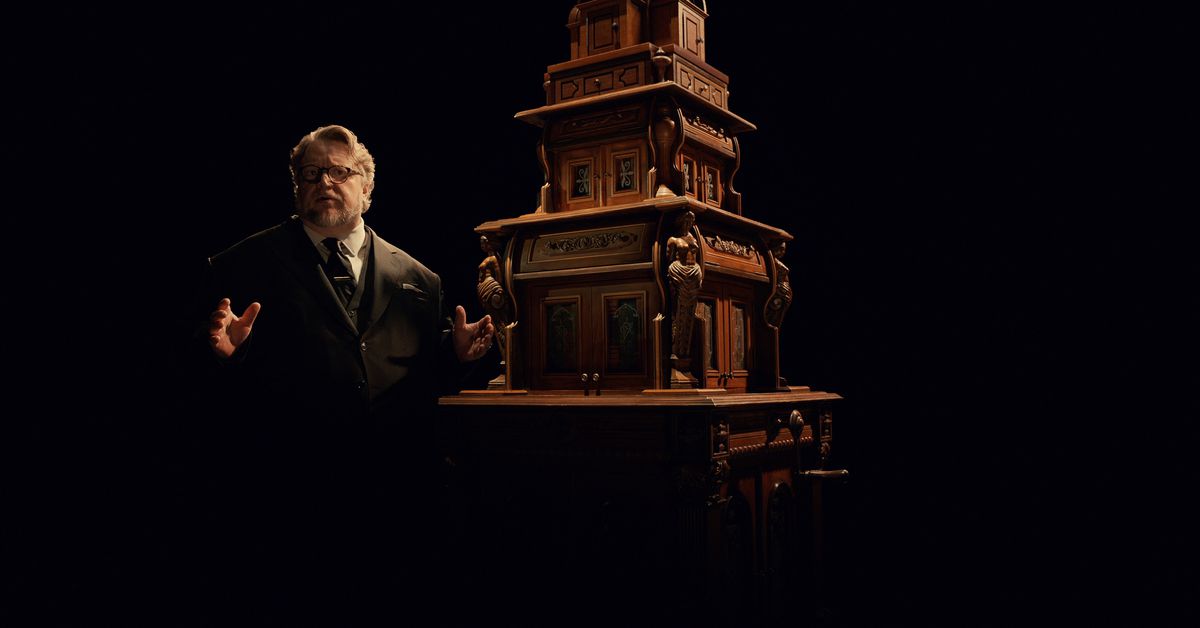Title: My People: Life is a fight, we choose our sides
The children caught Sushil by surprise. They ran up the road, where it curved toward the state assembly building. Their unformed, thin legs beating a furious rhythm on the asphalt road, school bags thumping on their backs. Just a few minutes ago, they had been standing in the bus stop, half asleep, still in their dreams, when Sushil had walked past them on his way to the milk store.
Bhola, the municipal worker, who was spread-eagled on the pavement, sat up too.
The procession came soon after.
A silent line of men and women, in twos and threes. The crude lathis, fashioned out of tree branches, that they carried in their hands glinted in the sun.
Sushil instinctively stepped back from the edge of the pavement toward the milk store and stared.
“Who are they,” Sushil muttered, as he looked closely at the lathis. The lathis that the men and women carried looked familiar, similar to the ones people back home used to beat the ground to scare rogue tigers and elephants that sometimes strayed to their village at night.
“You should know,” Bhola grimaced, and spat on the ground, a large, glistening blob of phlegm.
His bidi unlit in his mouth, as he crawled back further on the pavement. The smell of stale, country liquor spreading around him.
The smell overpowered Sushil, so close the man had come. But Sushil’s eyes remained on the procession.
“Your jaatwallas, people from your community. Tea plantations too small to hold them these days. They have started to infest the city,” Bhola said.
The procession was making good progress, Sushil saw, as the realization that the men and women resembled his neighbors and relatives—with their sun-burnt mahogany skin and nondescript vests, faded with years of wash and use—took hold of him. He felt breathless.
They walked steadily, unmindful of the auto rickshaw drivers and shopkeepers and other passersby, who were slowly gathering, seemingly out of nowhere, on the sides of the road to watch.
They were peaceful. These men and women. Just walking. Their feet bare and at ease on the ground. But there was purpose in their very anonymity and the fall of their feet on the asphalt road. Perhaps, even menace.
Then it happened.
Someone from the crowd threw a stone. The jeering began soon after.
First one voice, then another, and yet another, until the early morning air reverberated with noise. “Coolies, go back, coolies, go back. Who do you think you are, go back and do your work.”
Soon, all hell broke loose. The procession disintegrated into a flurry of bodies: arms and legs and everything else. The sound of lathis against bare skin and flesh rose in the air. It happened in an instant or it could have been minutes, Sushil was not sure.
He only heard Bhola shout, “Run, run,” even as two men ran into the milk store, where the shop assistant had just pulled the shutters open and stepped out to see what the fuss was about.
For a few minutes, Sushil stood immobile, paralyzed.
He heard the mushy sound the lathis made as they came into contact with the body of the sleepy shop assistant, who began to scream. A high-pitched keening sound that froze Sushil’s blood and made him canter up the street, until he saw the right turning into the lane where he lived.
In the lane it was miraculously quiet, filled as the lane was with family homes whose occupants were just waking up to a new day. Here the sound of the lathis and the shout and chaos of the main road, a few meters away, was a faint echo. The colony of families, rooted in their world of fish curries and children’s school progress reports, had an air of drowsiness and tranquility.
The shouts and panting and long-drawn out breath that had chased Sushil ceased. No one followed him into the lane to the house where he lived and cooked for Mrs. Goswami and her family.
As he neared the house, Sushil could see Mrs. Goswami sitting on the cane sofa in the verandah, sipping her morning cup of tea. The first of the many she would drink in the day, strategically interspersed to fortify her for her many chores.
He was late today, Sushil thought. It was he who usually prepared her first cup with just the right amount of tea leaves and milk and sugar, which Mrs. Goswami claimed she needed to jolt her muscles and limbs awake.
Mr. Goswami was probably still in bed. He liked to sleep late.
Sushil stopped for a moment when he passed the yellow scooter parked discreetly on the side of the lane, right next to the house, wondering whether one of the people from the procession had parked it there. Then he shook his head. No, it couldn’t be. A scooter or a car owned by a tea plantation worker was rare. The scooter belonged to the man who visited the neighborhood early in the morning to steal the hibiscus and marigold flowers that bloomed in profusion in the garden of the house next door. Without so much as a polite, can I?
Sushil wondered whether he should be bold enough to tell Mrs. Goswami’s neighbor to cut the branches of the flowering hibiscus tree. The many branches were a temptation to the losers who stole flowers for their morning prayers. Must be one of those damn people who live in those new flats, not from the state at all, Sushil thought, momentarily distracted.
He glared at the concrete buildings that had sprung up in odd places, dwarfing the graceful bungalows with slanting roofs that still rose defiantly. Sushil was proud of his knowledge of the locality.
“What are you waiting for? Staring again,” Bhola’s voice behind him brought back the morning’s events to Sushil, and he burst through the gate of Mrs. Goswami’s house in another surge of adrenalin.
Followed by the huffing and puffing Bhola. His body bent with the exertion.
“Madam, there is a riot in the main road. A procession, a strike,” Sushil gasped, without closing the gate, and pulled his shirt up to wipe his face. His exposed belly, pale and hairy and unexpected, almost made Mrs. Goswami drop her teacup.
In his anxiety, Sushil had forgotten the decorum that Mrs. Goswami insisted on. He realized, too late, that he was wearing his favorite among the shirts that Mrs. Goswami had given him. The sweat stains would be difficult to wash away. The shirts had once belonged to Mr. Goswami, made of a foreign material, a little old and worn. But Sushil took good care of them, and washed and ironed them until they turned lustrous and looked new.
“Bloody coolies all of them,” Bhola said. His face red.
“Memsahib salaam,” he called, belatedly remembering his manners, and raised his hand to his forehead in a salute.
Bhola’s gesture disgusted Sushil, despite his confusion at what was happening. Sushil moved further into the courtyard and swallowed his disgust. Bhola was always wheedling and trying to cajole Mrs. Goswami to give him food and money.
This was Sushil’s house. The house where he had lived for a year. He had more right to it than Bhola.
“I did not recognize a single person,” Sushil said loudly. “My parents and uncles and sister would never participate in something like this,” and began fanning himself with his hands.
Mrs. Goswami abandoned pretending it was a normal morning and looked from one to the other.
“Are you both still asleep?” she asked. Her voice shrill. Sushil and Bhola had disturbed her morning routine and spoiled her day.
“Tea workers live in tea plantations. They don’t march in processions, they pick tea leaves,” she said.
Bhola scratched his cheeks, looked down, and began again. “But memsahib, it is true. They have come in trucks and buses. I saw them near Chariali. You know, I have to walk through that area on my way to work. What to do.”
“Don’t lie,” Mrs. Goswami said. Her voice tremulous and quite unlike her usual even tone.
“You certainly don’t walk three miles to work every day, stop trying to get sympathy. You come by bus and the bus does not pass Chariali.”
“But memsahib,” Bhola started again, and then abruptly stopped speaking. Instead, he fell to his haunches and made himself comfortable in the courtyard, as if all his energy had evaporated from him.
Sushil, who had been listening to the conversation, refused to keep quiet any longer.
“The tea plantations are closing,” he informed the bewildered Mrs. Goswami. If only Mrs. Goswami knew what it was like, Sushil thought; his father desperate for a job and his mother foraging in their garden and the jungle behind their village to look for something to eat.
“My parents work for only four months a year, six if they are lucky. The factory remains idle half the time,” he said.
Her morning spoiled, Mrs. Goswami, who was still clutching her teacup and saucer, carefully put them down on the table.
Bhola—who was never one to let go of an opportunity and seeing Mrs. Goswami’s cup of tea—asked, “Memsahib, can I have some chai-paani, tea? Doesn’t look as if I can do any work today. I will check later, in the meantime, I can water your potted plants and clean the drains if you want.”
“Shirking work as always,” Mrs. Goswami accused, half-heartedly clutching at this sign of normality. “And trying to get something to eat. I saw the garbage strewn all over the street yesterday.”
Bhola, who had anticipated her answer, again touched his forehead in a parody of a salute.
“Memsahib, what will I do without you,” he said.
The words fell out of his mouth with the ease born from long practice. Bhola was adept at flattery.
The gesture seemed to irritate Mrs. Goswami, who harbored a vague guilt, despite herself, at her comfortable life. She tightened the belt of the dressing gown she was wearing, and raised her arms to check whether her hair was securely pinned in the back of her head. Only Mr. Goswami had the honor of seeing her thick, shining open hair.
“Stop the drama,” she told Bhola in her no-nonsense voice. “You adopted the same tactic to get fifty rupees out of me some time ago and one hundred before that. Besides, what will your daughter think.”
“God knows, how you are the father of that neat and smiling girl. What a help she is for me. Mending our clothes and arranging the flowers,” she added.
“See, I earn money to send her to school. Even though her mother is no more, I don’t neglect the girl,” Bhola said, his voice triumphant.
Then seeing Mrs. Goswami’s face, with its stern look, Bhola changed his tone and flattered, “Memsahib, you are the only person who allows a municipal worker’s daughter to enter your home and kitchen.”
Sushil, who had been quiet for a while, said, “My sister plays football.”
Bhola always talked about his daughter. Sometimes, Bhola accosted strangers walking on the road, when he was drunk, to brag about her education. The only teenage girl in his basti who was in school and in class X11. Why shouldn’t Sushil say something about his beloved Lakshmi? His fifteen-year-old sister who dreamed of becoming a national level football player.
“Football,” Mrs. Goswami almost twirled to look at Sushil.
“But she is a girl,” Mrs. Goswami said. “Girls don’t play football. Look at baby, she has started table tennis lessons. That is a nice game for women. All indoors and no running about in the muck, getting dirty and muscular.”
“My sister plays football like a man,” Sushil held his ground. “And the coach who comes to the tea plantation every month says she can go to a free sports school, if she goes to Delhi for a talent contest. I am saving money for the trip.”
“Don’t know what the world is coming to. Changing so much. Never in my life have I heard of a procession of tea workers. They live in tea plantations living quiet lives of work and merriment,” Mrs. Goswami said, sounding weary.
No, they don’t, Sushil thought, but said nothing. Mrs. Goswami probably had no idea of how the tea she loved so much was grown and harvested. She was more interested in the neighborhood committee of which she was a member than tea workers.
Only last week, Sushil had helped her organize a tea party for the members, where Mrs. Goswami had spoken of the need to have better water supply in the locality. The lady municipal councilor was present too.
Mr. Goswami had been quite proud of Mrs. Goswami and said. “You stood up and spoke in front of that politician. Now that’s the way. We have to talk about our difficulties.”
“Sushil, go to the kitchen and make some puris,” Mrs. Goswami raised her voice to address Sushil. The voice that she used to assert her authority. “Give this imbecile, Bhola, his breakfast. I am going to the main road to see what the ruckus is about and will be back in a minute.”
“But madam…,” Sushil began and faltered. He wanted to warn her, but his courage had run out. And he was back to his shy self.
Bhola, old and wise, kept his counsel to himself.
From the house, the main road was not visible, and the lane that connected their neighborhood to the main road, was quiet.
Sushil wished he had been more circumspect. He was not given to outbursts of this sort, and never addressed anything directly at Mrs. Goswami. She was a kind woman. Hadn’t Mrs. Goswami given Sushil shelter, when he had arrived at her home one afternoon, desperate for a job? Any job.
From where he stood on the courtyard, Sushil could see Mrs. Goswami’s broad figure walking slowly up the path toward the main road.
In an impulse, Sushil ran after her. His feet pushing forward, one after the other. The second time this morning.
Up in the lane, Mrs. Goswami had reached the point where the lane merged with the main road. Sushil saw her look first right and then left. Then, apparently satisfied, Mrs. Goswami turned to return home.
The three men appeared out of nowhere. Their faces dark and expressionless.
Maybe they were hiding in the bushes that grew in the sides of the lane. Perhaps, they were relieving themselves there.
They took Mrs. Goswami by surprise, who lurched and almost tumbled down in the effort not to collide with them. So close were the men.
Sushil saw that they were blocking Mrs. Goswami’s path home, standing across the breadth of the narrow lane. Mrs. Goswami looked a little lost and uncertain.
Something stirred inside Sushil.
“Let her pass,” Sushil hissed.
Surprised at his own words and even more surprised when he realized that Bhola had followed him and was standing behind him, the metal garden truncheon upright in his hands.
The three men turned toward Sushil and Bhola in one single motion, as if taking part in a closely choreographed dance. Their eyes flicked toward Bhola, but it was on Sushil’s face that their gaze lingered.
Sushil bent in a posture he had seen a boxer—who had come to their village for a demonstration— assume before getting ready for a bout. The hard mud of the unpaved lane rough below his feet, a strange respite, after the past few months of wearing the rubber chappals Mrs. Goswami insisted he wear. Sushil had not realized how much he had missed that sensation.
They—Sushil, the men, and Bhola—stood staring at each other. All of them similar in appearance and posture. They stood for what seemed like a long time. The lathis in the men’s hands swayed side to side, as if anxious to touch somebody.
Their eyes drilled an uncomfortable flush beneath Sushil’s skin.
Sushil wanted to explain. He wanted to say they are good people, Mrs. Goswami, her family, neighbors, and even Bhola. People who drank and ate, and cried and fought and loved. Human beings.
Then one of the men puckered his face, and the words shot through the air, whipping Sushil’s face, “Coward, betrayer.”
“What do you think you are doing? Gone mad,” Sushil whispered, as he wriggled his back to dislodge the restraining hand that Bhola had placed on the small of his back.
“He is a Collie, this one. Like you,” Bhola said into the silence that followed.
Behind them, Mrs. Goswami’s voice rose, calm. The one she used when she thought Sushil or Bhola had not done his work properly.
“It is past Baby’s wake-up time. Baby, my daughter, will need her milk. She always has a glass before going to school,” she said.
The men’s eyes remained glued on Sushil and Bhola, but their shoulders relaxed. They stopped playing with their lathis and their bodies creased into the familiar slouch of people who spent hours in the sun picking tea leaves.
They stood for a few minutes more. Then as if in answer to an unseen signal, they parted to make room for Mrs. Goswami to pass.
Sushil held his stance until he saw the men turn and walk toward the main road. They did not look back. Sushil turned to go home. He could see Mrs. Goswami walking steading back, smoothing the front of the silk dressing gown that Mr. Goswami had bought for her from Hong Kong and checking her hair. Bhola was closely following her, dragging the garden truncheon behind him.
“Everything is out of schedule today,” he heard Mrs. Goswami say.
Bhola nodded his head sagely. He looked different without the habitual, ingratiating smile plastered on his face.
When they reached the house, Sushil went to prepare the puris Mrs. Goswami had asked him to.
Bhola was sitting in the courtyard, when Sushil came back to the verandah. Bhola had abandoned the hedge that he was pruning earlier and took the plate of puris silently from Sushil. He began eating immediately. His manner docile. Bhola was a noisy eater, crunching, chomping, and slurping his tea and puris.
For him, this was a day’s work and everything was normal again.
Sushil’s bewilderment had, however, morphed into a harsh, raw anxiety. The kind of anxiety that begins in the pit of the stomach as a dull throb, and then makes painful inroads into the rest of the body, making him lethargic and unwilling to do his morning work.
It was then the sounds began. Rapid bursts of loud bangs that stopped for a minute or two and then began again. Quite like the gunshots in the Hindi films Sushil loved.
The sound and color and drama of Hindi films always brightened Sushil’s day. This sound was different. Too real and too near. Mrs. Goswami too looked scared. She forgot her rectitude and fled to her bedroom. Mr. Goswami was probably still sleeping.
A bed sheet stretched to its limit to cover his face and body. Maybe a mosquito had entered the mosquito net, despite Sushil’s efforts to tuck it in on all sides the previous night. Baby would be on her side of the bed, fast asleep.
Later, Mr. Goswami, although angry, calmed down as he sipped his morning cup of tea. He hated being woken up.
“Tea workers on a rampage in Guwahati. What cheek. Why don’t they protest in tea plantations or leave? No good those tea companies, draining resources and doing nothing,” he said, as he peered at the newspaper headlines. His reading glasses lay forgotten on the bedside table.
But they have lived here for many, many years. This is their home, where will they go? Sushil wanted to say.
Instead, Mr. Goswami said again, “I will delay going to the office by an hour today. I am sure it will be safe by then. The police will do their job,” and stood up to go to the bathroom.
Sushil stood holding Mrs. Goswami’s second cup of tea. He did not want to hear about protests and strikes. There were too many of them anyway. It seemed to Sushil that his state had sunk into a cauldron of hatred and annihilation. Sushil returned to the kitchen to knead more atta to replenish the dough for puris. Mr. Goswami was awake, and the family would soon sit down for breakfast. Baby would throw a tantrum, “No cereals, no cereals.”
Sushil poked and prodded the dough vigorously. The family loved Sushil’s soft puris. Sushil was lucky. Mr. Goswami had promised him a job in his office.
“You will make a good office boy,” Mr. Goswami had said.
There were limitless possibilities once you had a job, Sushil acknowledged to himself.
Not that Sushil did not earn a steady income now. Mrs. Goswami paid his salary on the first of every month. Only it was not enough. How much can you do with five thousand?
Sushil tried to erase the memory of the procession. In a way, he understood them. Those men and women. And their need to protest and destroy. To even kill. He had felt the need to destroy too and had become violent the day the houseboy from the manager’s bungalow had come to for her. But Sushil’s sister was nowhere to be found.
“I want to become a nun,” she had shouted, when she had reappeared the next day, disheveled after spending the night in the makeshift prayer hall with a wooden cross.
His father— who knew better than to attempt anything other than to scold— had said, “Heathens, the lot of them. Does anyone help without asking something in return? All of them the same, pandits and nuns.”
His mother had said nothing. The rice gruel she was cooking had occupied all her attention.
Sushil did not blame his parents. What could they do? Where could they go? Sushil did not want his sister to live in a convent.
“Don’t go,” Sushil had told his sister. “They are kind. But you are different.”
But his sister had been adamant. She liked having a full stomach and not having to work and serve other people, she said.
With no other argument, Sushil had sat tight-lipped, forlorn. He wanted to clothe his sister in bright green and orange and red, and watch as she drank and ate and became merry. So merry that she forgot everything, and danced and danced.
Home was not the same with his sister away. His mother became morose. While his good-natured grandmother took to beating her breasts at the slightest provocation, drinking loupani, which she mysteriously procured every day without a paisa to her name.
Sushil left the tea plantation soon after.
On his last day Sushil had walked to the prayer hall.
“My sister needs to see me,” he had lied to the senior nun. “Something urgent.”
His sister had cried that day, reluctantly. Drops of iridescent moisture that spoke of broken dreams.
“The nuns are admirable, but you are meant to be a sports woman. I will bring the money,” he had assured her. Even though, the city seemed far away. Daunting.
He did not know then he would meet Mrs. Goswami and her family.
Now, standing in Mrs. Goswami’s kitchen, Sushil’s hands slowed, as if they had begun to have a mind of their own. And he found himself cleaning the atta off his fingers. The breakfast barely cooked. He went to his room tucked in the back of the garage and emptied the biscuit tin he had stuffed with money saved over months.
When Sushil came outside, he saw Bhola cleaning the drains, bare chested, thin ribs exposed to the world.
“Arrested the lot of them,” Bhola said.
Sushil ignored him and walked toward the main road. He turned left, where it snaked toward the state assembly. Instinctively, he knew that was where they were going. His people.
In the distance, he could see police vans. Maybe they were arresting the rioters. Sushil did not care. He had to be there among them. Maybe later, in the evening, he would come back to Mrs. Goswami’s house, but for now, he simply kept on walking.







